Paul Kent: NRL aims up against bikies as AFL crosses dangerous line with handling of drug scandal
The NRL hasn’t been without its colourful history of social drug use in the past, but it stands clear in light of the AFL’s embarassing handling of its public drug scandal, writes PAUL KENT.
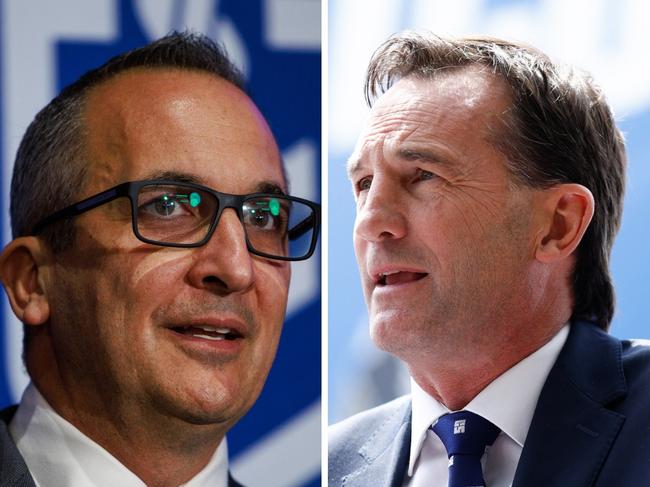
The problem for the AFL with the 100 or so cocaine users playing their game, and maybe one or two out this weekend with a hamstring niggle, is that cocaine can eventually be traced back to the distributors.
The distributors are inevitably the friendly chaps the rest of us call bikies and, while greasy leather jackets and bad dispositions have been swapped for black and gold Versace and bad dispositions, their motive is still the same, which is money and control.
It’s the same operation, just better dressed.
And the problem for the AFL is Sport Integrity Australia (SIA) has clear evidence that when bikies and athletes mix, with cocaine as the bond, it inevitably leads to organised crime and match fixing.
Even now, Melbourne star Joel Smith is currently sitting it out after being hit with three new doping violation allegations by the SIA for drug trafficking and attempted trafficking.
The Melbourne Demons are also the club where this week’s AFL drug scandal broke, although there are no suggestions of match fixing by any Melbourne player.
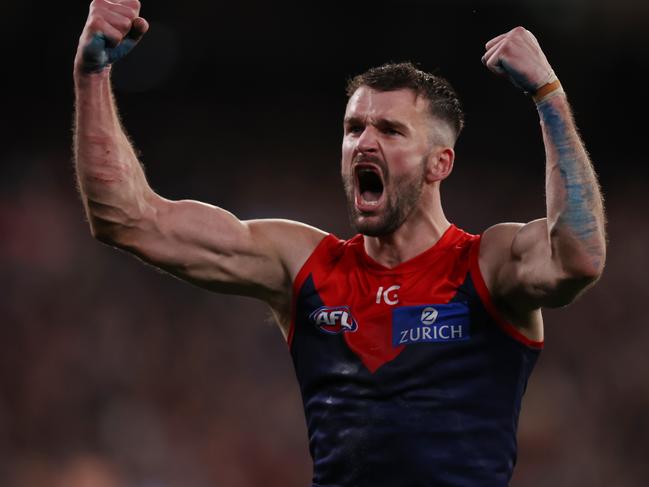
Since the scandal broke earlier this week the AFL has embarrassed itself by throwing up the PR spin of player welfare and the right to privacy.
Yet any player gets photographed snorting a line from a plate and he is hit with a two-week sit down.
Where is the welfare there?
Or is it all about brand protection, which the AFL is accused of and some shamelessly defend?
This is a body charged with running the integrity of the game, corrupting the game.
The NRL has been watching closely, saying little beyond official rhetoric but quietly confident it won’t be roped in with similar allegations.
Some snooping this week suggests the NRL is shocked that the AFL was complicit in drug cover-ups but the clubs not so shocked.
It would not surprise here if clubs assist the players in a similar manner.
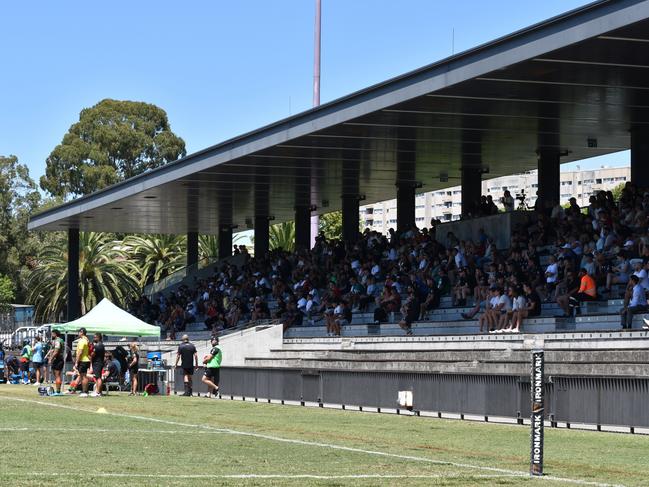
The NRL has a colourful history with social drug use.
It started way back in the late 1980s when drug testers turned up to training at Redfern Oval one night and almost a dozen of the Souths players shot out of the dressing room and hopped the fences.
They worked on the theory that if they couldn’t be caught they couldn’t be caught.
The mask had dropped.
Controls weren’t as specific back then as they are now.
There was a player who turned up to training one night dressed in a bomber jacket, shaking cold but with a heavy sweat.
The club immediately recognised he had a fever and sent him home.
Before he made it out the door a big hand dropped on his shoulder, the polite gentleman introduced himself as a drug tester from ASADA, as it was known then, and asked for a quick sample before departure.
The player winced. He was sick.
The drug tester shook his head.
So he took his plastic cups for the A Sample and B Sample and headed to the bathroom, the tester closely behind.
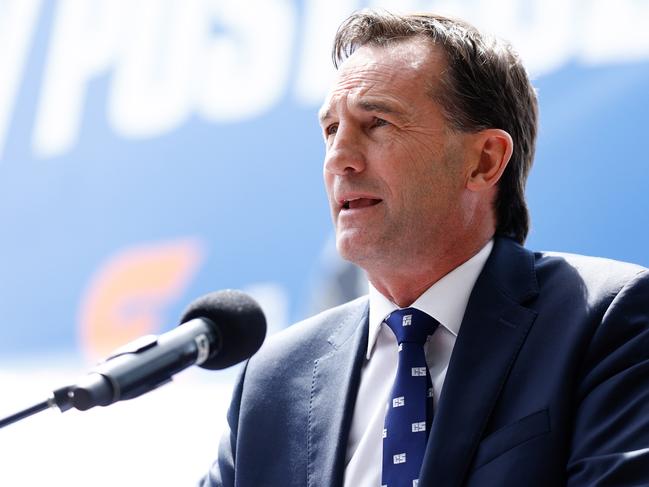
As he unzipped the tester’s head poked around with a slight blush, informing the player his interest was of the business kind and not romantic, that he needed to see him actually provide the sample.
This caused a small problem.
The player was not normally a shy man but he admitted to stage fright.
So they sat and waited, and waited.
Eventually the player said he thought he could only provide a sample if, to put it delicately, he was allowed to sit down in a cubicle and allow himself to relax fully, so to speak.
It would never be allowed now.
He sat down and took the cap off a small tube he had running down his arm, which was connected to a bag full of clean urine that stayed nice and hot in his armpit, and he filled the cups.
He had been tipped off he was being targeted and the whole.
The sweating had nothing to do with fever but was because he was so hot in the heavy bomber jacket.
The sadness, and the warning, is he died years later of a drug overdose.
This is one danger, according to SIA, with the AFL’s refusal to properly discourage drug use.
Smith’s father Shaun, himself an AFL veteran, told 3AW this week that if his son was 17 again he would not let him play AFL.
He said the culture in the AFL was toxic, saying another player at Melbourne “had issues”.
It would take very little for organised crime, like the bikies, to get in the good graces of an elite player and through either debt or the promise of future friendship, which they are susceptible to, give him a line of cocaine and ask him to sit out Saturday’s game.
Meanwhile, they plunge on the betting market.
While no one is suggesting that is what actually happened at Melbourne, markets can shift dramatically with just a single player out of the game.
For such reasons the NRL has come down hard on players in recent years socialising with known bikies, aware of the potential dangers.
The NRL has aimed up.
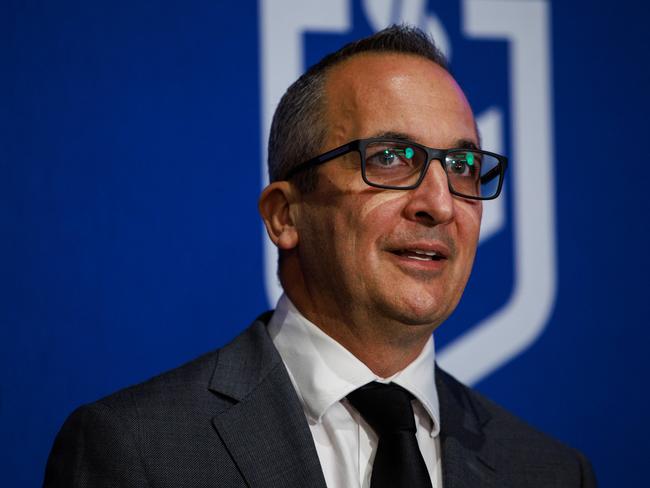
Meanwhile AFL House has had a troubled history with drugs.
But it might have outsmarted itself this time.
Sport Integrity Australia has 97 registered sports, making them subject to government legislation. As part of signing up, the government provides funding.
Years back the AFL, in what now looks like a bid to protect its players, refused to sign.
The government, in response, threatened to withdraw funding for all those dollars that filtered all the way down to junior levels.
Recognising it was a chance of missing out on those rivers of gold the AFL got clever and came up with a scheme to become a “signatory” of SIA by signing up directly with the WADA, World Anti-Doping Agency.
It allowed the AFL to by-pass the Sports Integrity Australia Act and hold them directly accountable to WADA.
By doing so, though, these latest revelations mean AFL has inadvertently allowed itself to become a direct target of WADA and their trained posse of sleuths.
These people are not the passive kind; they take reports of illegal drug use seriously.
SIA believes the AFL has gone outside its policy by being complicit in helping players avoid positive drug tests and the Agency is working hard behind the scenes to change this.
Prime Minister Anthony Albanese, whose government provides millions in funding to the AFL, has distanced himself from it.
Good old Albo can’t see the votes in getting involved in this.






To join the conversation, please log in. Don't have an account? Register
Join the conversation, you are commenting as Logout